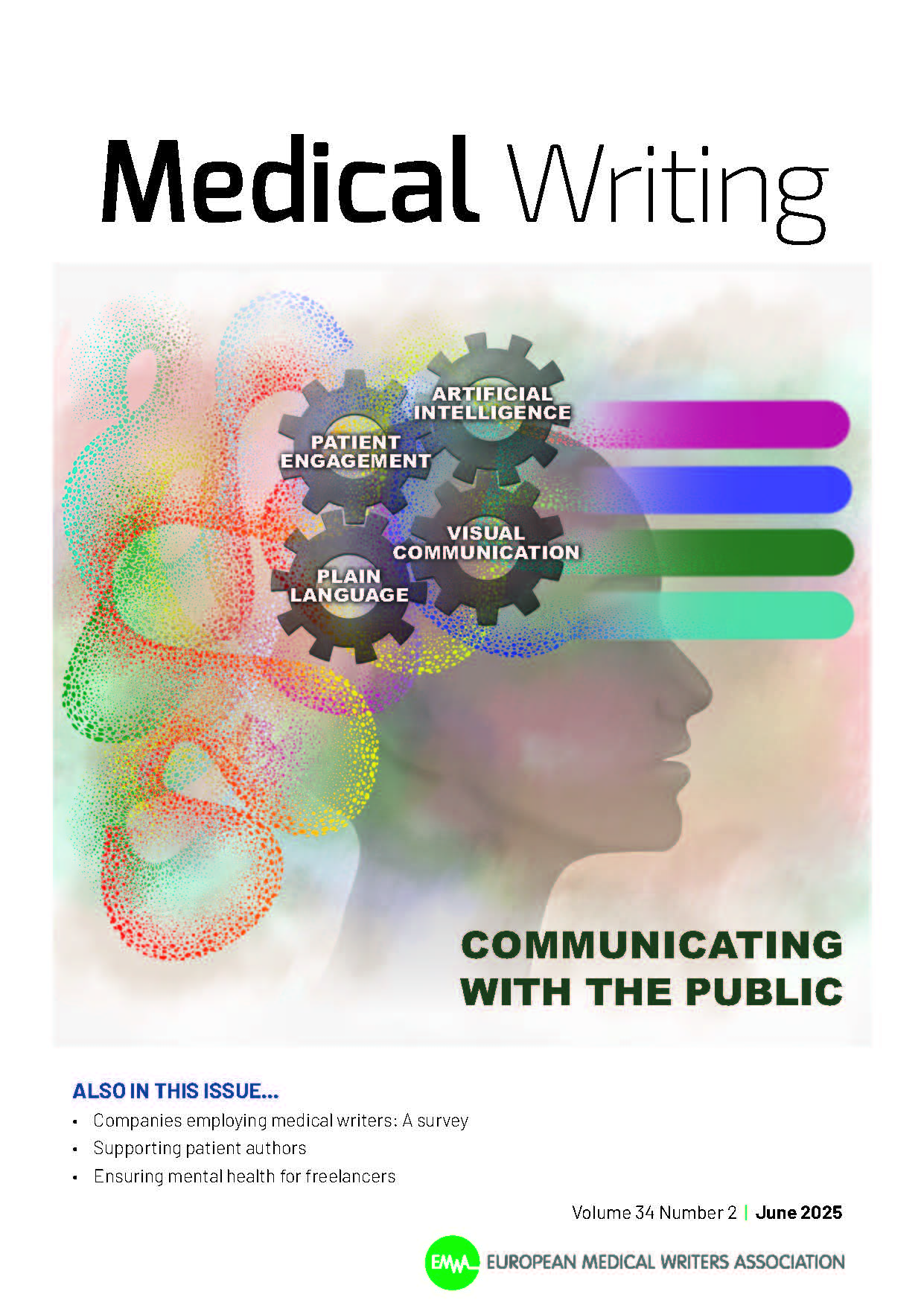
Volume 34, Issue 2 - Communicating With the Public
Considerations for the use of artificial intelligence in the creation of lay summaries of clinical trial results
Author: Kimbra Edwards
Abstract
The clinical research landscape is constantly evolving, as new regulations and innovations come together to help accelerate scientific discoveries and medical advances. A prominent example of this is the rapidly emerging technology of artificial intelligence (AI). Using AI to develop lay summaries (LS) of clinical trial results can enhance transparency and accessibility, while maximising efficiencies and facilitating scalability. This document is a product of collaboration between experts from over 15 organisations in the US and the EU, including industry, academia, and a patient-focused nonprofit. It aims to explore how AI can be responsibly applied to LS development. While aligning with current industry standards, this document provides several recommendations for AI implementation that highlight the necessity of human oversight and expertise. This joint effort between human and machine can help LS achieve high standards in accuracy, transparency, and compliance, while building public trust and empowering patients to make informed healthcare decisions.
Medical Writing. 2025;34(2):74–81. https://doi.org/10.56012/vmag9372
 Download the full article
Download the full article
Search
Articles
Links
Editoral Board
Editor-in-Chief
Co-Editors
Senior Editor
Victoria White
Managing Editor
Alicia Brooks Waltman
Associate Editors
Section Editors
AI/Automation
Biotechnology
Digital Communication
EMWA News
Freelancing
Gained in Translation
Getting Your Foot in the Door
Good Writing Practice
Pablo Izquierdo / Alison McIntosh
In the Bookstores
Publications
Medical Communications/Writing for Patients
Medical Devices
My First Medical Writing
News from the EMA
Pharmacovigilance
Regulatory Matters
Regulatory Public Disclosure
Louisa Ludwig-Begall / Sarah Kabani
The Crofter: Sustainable Communications
Veterinary Writing
Editors Emeritus
Layout Designer
Chris Monk
 Visit the EMWA website
Visit the EMWA website